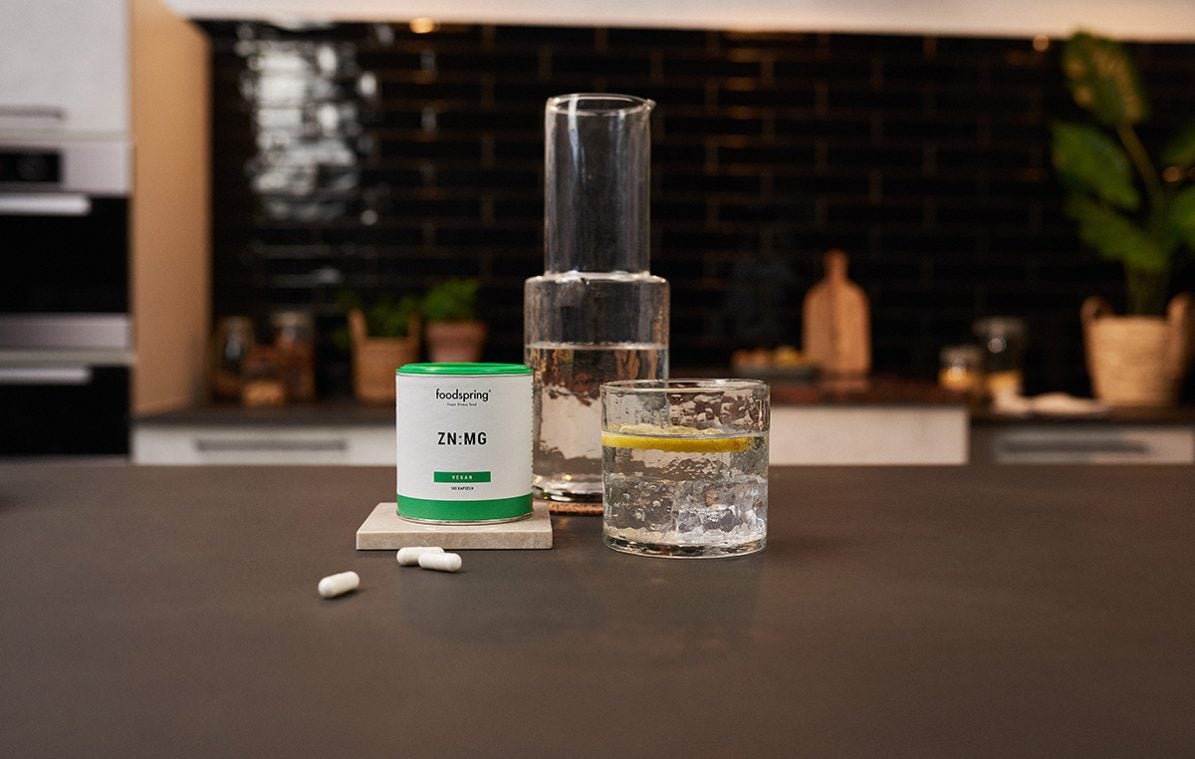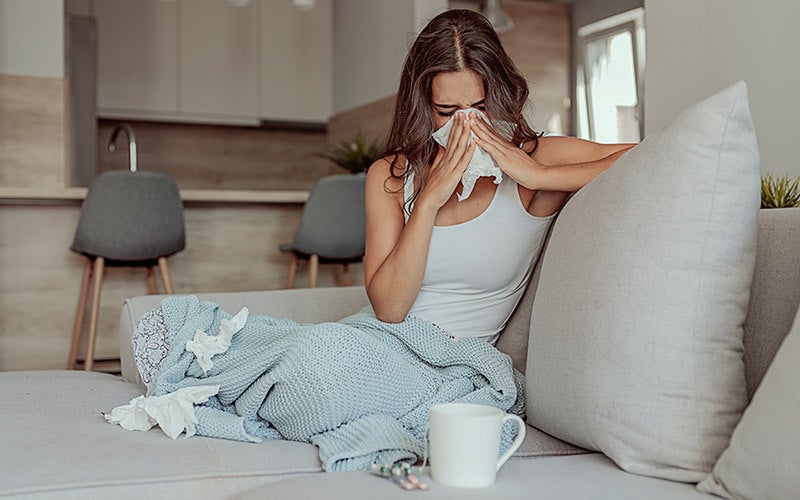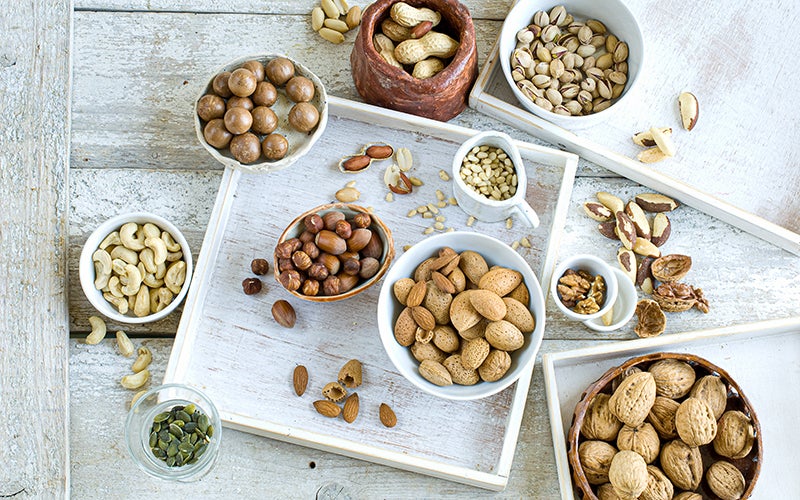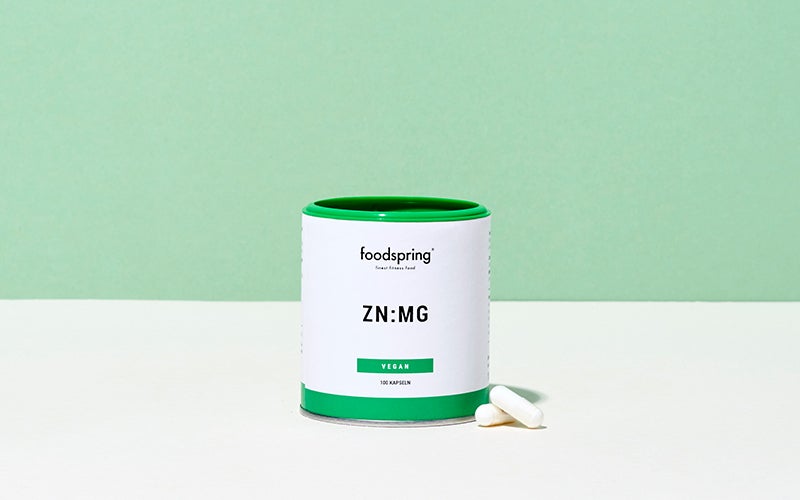Zinc: What’s your optimal dose of this essential mineral?
 https://wp-test-dev.s3.amazonaws.com/public/uploads/2020/06/zink.jpg
https://wp-test-dev.s3.amazonaws.com/public/uploads/2020/06/zink.jpg
This mineral is essential for your body, but all you need is a small dose – you guessed it, we’re talking about zinc. Read on to find out what makes this trace element so important, where you can find it, and how much you need every day.
What Is Zinc?
In order for the human body to function at its peak, it relies on several important building blocks, and zinc is one of them!
Zinc is a trace element that’s particularly important for our muscles and nerves. Trace elements are a subcategory of minerals that your body only needs in small quantities. But that doesn’t mean their importance should be underestimated. Many essential minerals, including zinc, are crucial for our bodies.
There’s just one catch. The body neither produces zinc itself, nor does it have any way to store it. That’s why we have to take matters into our own hands to avoid a deficiency. Thankfully, we can absorb zinc from quite a few foods and get all we need through a balanced diet.
Zinc and Your Immune System
A little zinc may go a long way, but it’s still involved in many different processes in the body. Did you know that it’s needed for both cell growth and wound healing? It’s got a long to-do list: Zinc is a component of hundreds of enzymes and proteins, and it’s also involved in various metabolic processes and reproduction.
Zinc is also essential for your immune system. After all, in addition to its external use as oxidized zinc in mineral sunscreens, the trace element has made a name for its internal uses as a natural remedy that’s said to strengthen our defenses and fight off the common cold. But what do these zinc lozenges actually do?
The answer to this question has also been the subject of scientific research. For example, in a study at the Leiden University Medical Center, researchers found that the multiplication of different RNA viruses was prevented by increasing intracellular zinc concentrations together with zinc ionophores1. In a meta-analysis by Singh et al., another fascinating finding about timing came up: People who took zinc lozenges 24 hours after their first cold symptoms appeared to experience less severe symptoms and shorter durations2.
In general, it can be concluded that dietary zinc is important for the immune system and helps build up part of the body’s defenses. However, it is important to remember there’s no hard evidence that says zinc can actually prevent the common cold.

Recommended Daily Zinc Intake
Since zinc is known to be vital for the human body, you’re probably wondering how much of it you should consume every day. This is where the Food and Nutrition Board (FNB) at the Institute of Medicine of the National Academies in the US comes in: They’ve established age-related recommended daily allowances (RDAs) for zinc that range from 2mg for children up to 6 months old to 13mg for young people who are nursing3.
There’s just one other thing you need to be aware of: phytate. Phytate is found mainly in legumes and whole-grain products and it binds zinc in the gastrointestinal tract. That limits the body’s absorption of this important trace element, which means that its bioavailability is reduced. Since an increased dietary phytate intake also requires an increased zinc intake, seek medical advice if your diet is high in phytate or you are pregnant or nursing.
Recommended daily zinc allowance (female)
| 14-18 years | 9mg |
| 19+ | 8mg |
Recommended daily zinc allowance (male)
| 9-13 years | 8 mg |
| 14+ years | 11 mg |
What Happens in a Zinc Deficiency?
Because zinc plays a role in so many essential processes, you should make sure that you avoid a deficiency and the various symptoms that may come along with it.
A zinc deficiency can lead to impaired growth in children, diarrhea, skin eczema, wound healing disorders, an increased susceptibility to infectious diseases, and problems with perception and memory.
A slight deficiency in levels of zinc can lead to hair loss, loss of appetite, and a reduced sense of taste. It is also important to note that these symptoms may not automatically mean a zinc deficiency and may have other causes. Severe forms of zinc deficiency are very rare in Europe.
Groups at risk of developing a zinc deficiency include senior citizens and patients with chronic inflammatory bowel diseases. In addition, vegans and vegetarians should pay special attention to their zinc intake, because their diets may contain a higher amount of phytate.
If you have a plant-based diet, you should pay attention to ensuring that your whole-grain products and legumes are soaked, soured, fermented, or germinated.
Can You Overdose on Zinc?
If you focus too much on how essential zinc is for your body, you might get the impression that an increased intake could also improve your health. Unfortunately the opposite is true.
Overdosing, by taking too much oral zinc sulfate, for example, can have significant negative effects. For example, high zinc intake combined with low copper intake can lead to anemia. An overdose of zinc can also cause symptoms of poisoning such as nausea, vomiting, and diarrhea.
For this reason, the FNB has also established age-related tolerable upper intake levels (ULs) for zinc. For adults, this is 40 mg of zinc per day.
Foods High in Zinc
A stable amount of zinc in your diet is very important, so it’s good to know what foods are high in this trace element.

High-quality dietary sources of zinc include beef, poultry, and pork, as well as shellfish and fish. It’s also found in cheese and eggs. Plant-based sources are not only relevant for vegetarians and vegans because they include wild rice, oatmeal, wheat, and rye seedlings, and various nuts such as cashews and pecans.
When Should I Take Zinc Supplements?
As a rule, a balanced diet is a good way to cover your daily zinc requirement. After all, you can get enough zinc with food. But it’s still important to remember that other substances can also play a role in promoting or inhibiting your body’s absorption of zinc.
In addition, weeks can come up in which we have particularly busy daily or training schedules. These stressful days at work or in the gym can lead to an unbalanced diet and a corresponding lack of essential nutrients. This is where supplements come into play. These quick sources of trace elements are especially useful for athletes who often need more zinc and magnesium.
With the wide range of products on offer today, it’s not so easy to keep track of them all and find the right product for you. That’s why we decided to make our Zn:Mg capsules: The perfect ratio of magnesium glycinate, zinc gluconate and malic acid ensures high bioavailability for the best possible absorption and processing of nutrients in the body – without side effects or tolerance problems.
Don’t worry vegetarians and vegans, we kept you in mind during the development process. The capsules for our supplements aren’t made of gelatin, as is customary in the industry, but of naturally renewable cellulose instead, which makes them completely vegan.

Zinc: Conclusion
- Zinc is an essential trace element for children and adults.
- It’s important because of its involvement in many different processes in the body.
- We only need zinc in small quantities. For men, their daily intake should be 11 milligrams on average, for women it’s 8 milligrams.
- Both too little and too much zinc can lead to negative effects.
- Because the human body doesn’t produce zinc itself, you have to get it through food or, in certain cases, supplements.
Sources for this article
We at foodspring use only high-quality sources, including peer-reviewed studies, to support the facts within our articles. Read our editorial policy to learn more about how we fact-check and keep our content accurate, reliable, and trustworthy.

































